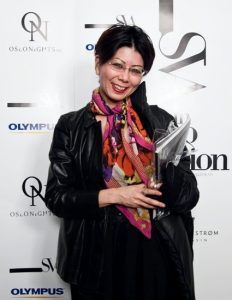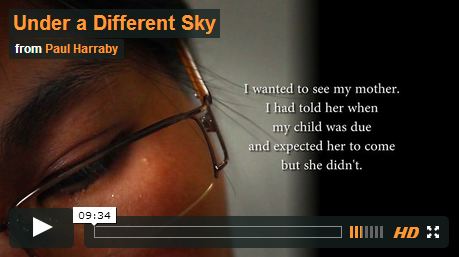A Future for Diaspora Women of North Korea?
Can UN Security Council resolutions help?
By Betsy A. Kawamura
Founder Women4NonViolence in Peace and Conflict Zones www.w4nv.com [email protected]

Betsy Kawamura
For the last ten years, I have been studying the plight of refugees from the Democratic Republic of North Korea and have been very concerned about the seemingly high rate of sex-trafficking occurring amongst the women fleeing to China or to another country. (Estimates reach as high as 75%) I have met with some diaspora women and men resettled in South Korea and more recently in parts of the United Kingdom. Some of those re-settled in the United Kingdom sought safety and refuge away from South Korea, where they experienced hurtful stigmatisation quite ironically. The tales of perseverance in their daily lives in and out of the North Korean gulags, as well as in Chinese prisons are truly appalling. It has also been as gruesome to listen to tales of North Korean women who had ‘volunteered’ to be trafficked to China or to a third country to experience a full stomach once in their lives, or to possibly present better lives for their children. Sources have indicated more women than men fleeing the country.
China to this day, still takes draconian measures to repatriate defectors from North Korea, violating several UN conventions to protect refugees. China is a permanent member of the United Nations Security Council that unanimously passed Security Council Resolution 1325 and other important ones on women, peace and security, and hosted the Beijing Platform on women’s rights back in 1995. It is appalling, therefore, to hear that China has refused to protect these women and children from forced repatriation on to potential torture or death. I strongly believe this action by China goes against the spirit of Security Council resolutions on women, peace and security. Where is China’s back-bone in protecting these women – or do North Korean women ‘not count’ as those who should be protected?
“It has also been as gruesome to listen to tales of North Korean women who had ‘volunteered’ to be trafficked to China…”
Looking at the mounting tension in Far East Asia, namely amongst North/South Korea, China and Japan and how the entire Asia Pacific region is affected by Kim Jong Un’s regime, it is unfathomable not to bring UNSCR 1325 into Far East Asian peace talks, including the 6-Party Talks. Russia, China and USA who are permanent members of the UN Security Council are also key members to the 6-Party Talks.
The perceived increased threat from North Korea has prompted the US military to augment its bases throughout the Asia Pacific region. The time is ‘now’ for women of Far East Asia to proactively bring these resolutions to the peace-negotiating tables, and to engage themselves in security discussions. As a survivor myself of gender-based violence in Okinawa during the Vietnam War, I feel it is critical for women of Asia Pacific to be seen as a force to be reckoned with in high-level peace-talks.
Women’s rights and gender-equality are exceptionally vulnerable in practice in Far East Asia, with notable absence of women in high-level politics and advanced career engagement. Such economic marginalization and lack of opportunities can create an environment rife for exploitation of women into the sex industry. Japan’s GNP was once alleged to be supported nearly 20% by the sex industry. The women entering China out of the DPRK are most vulnerable to sex traffickers. And their ordeal into being coerced into the sex industry once in a ‘safe-country’ such as South Korea can not be under-estimated. Without providing these women economic sustenance and empowerment, one can be assured that the voices of North Korean diaspora women will continue to be undermined. The lack of women in significant roles in politics and in distinguished high-level careers in general in Far East Asia can perpetuate their social and economic marginalisation. Such economic marginalisation of women could be seen as signs of regimes hostile to democracy and human rights.
Let us not forget Bertha Von Suttner, the first woman Nobel Peace Laureate back in 1905 who captured the hearts and minds of people with her message and book, “Lay Down Your Arms!” in turbulent Europe. She was the ‘torch light’ who convinced Alfred Nobel to create the Peace Prize. If Ms. Von Suttner were here today, I am sure that she would be very supportive of economic and political parity between women and men, and would catalyze the women diaspora from North Korea to be engaged in high-level peace talks. I personally look forward to enabling UNSCR 1325 and allied resolutions in Asian nations affected by the 6-Party Talks. Ban Ki-moon once noted that he wished to see the harmonization of North and South Korea during his life-time. One of my important projects to empower DPRK diaspora women now in Europe via media and journalism training should catalyze his efforts.
About the Author
Betsy Kawamura, founder of Women4NonViolence is a social advocate who believes that the voices of survivors of gender-based violence (GBV) and diaspora women can help heal society. As a survivor she has worked internationally to empower women, including those of Asia-Pacific origin through instruments including UN Security Council Resolutions on women, peace and security. She has an undergraduate degree with honours in business administration and fine arts from the University of Hawaii, and an MBA in international marketing from San Francisco State University.
Her presentations and workshops in Europe, Asia and in the USA have been geared toward raising the personal voices of survivors of GBV and women diaspora, including from North Korea for political engagement. Her previous experience in the corporate sector has complemented her integrative programs for survivor well-being. Finally, her active network of advocates, state-level decision makers, legal experts, and media professionals helps further public awareness of women and children survivors in conflict and peace zones, all the way to the International Criminal Court in the Hague.
You may have an interest in also reading…
Nomura in New Insider Trading Scandal
Nomura is facing a new insider trading scandal. Nomura Holdings admitted to sweeping breaches of safeguards on confidential client information
Andrew Alli: Helping Unlock a Continent of Opportunity
Africa is still in desperate need of investment. The World Bank estimates that Africa requires $93 billion annually for the
World Bank: International Food Prices Hit Four-Year Low
New World Bank Group tool focuses on preparedness for potential future crises. International prices of food decreased by 6 percent

















































































